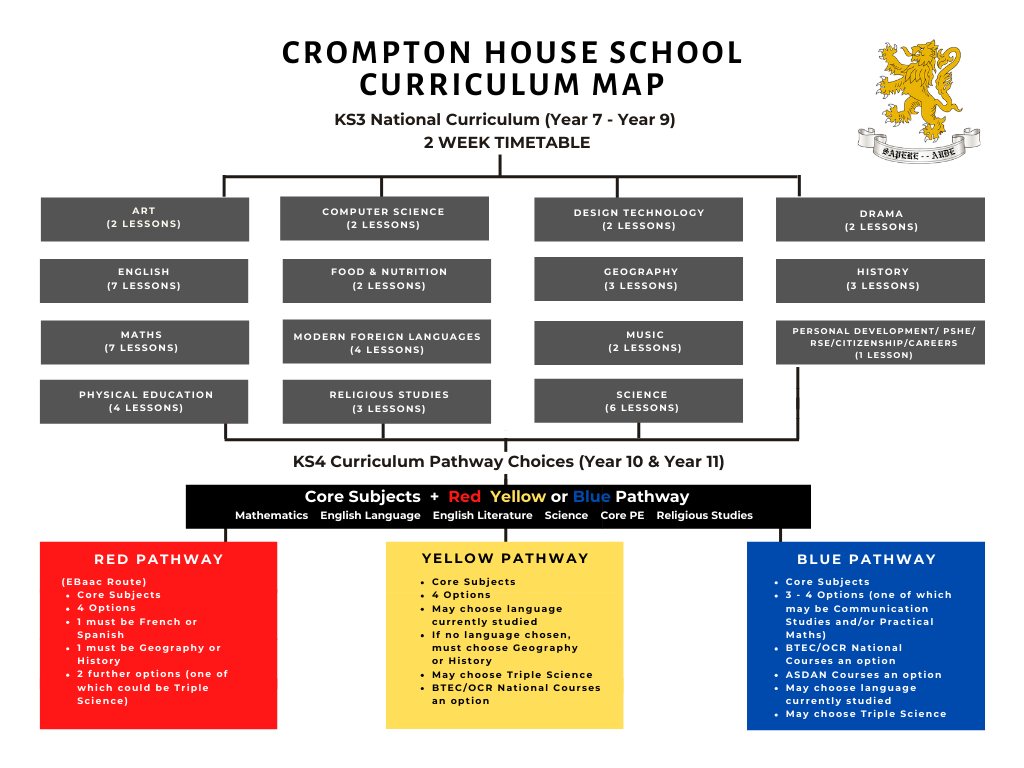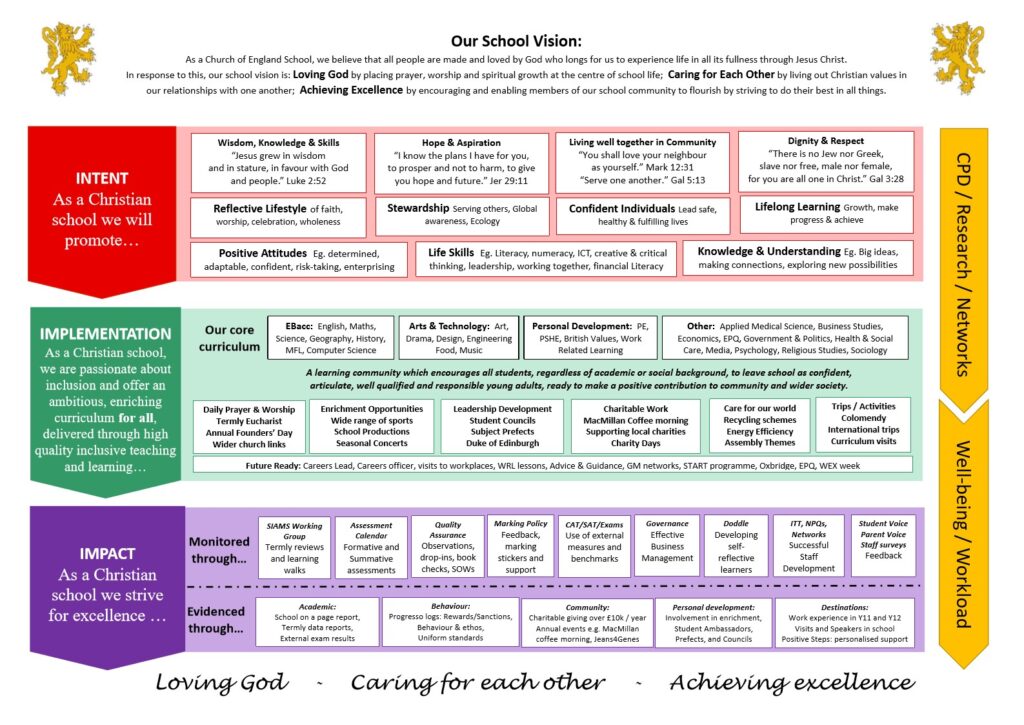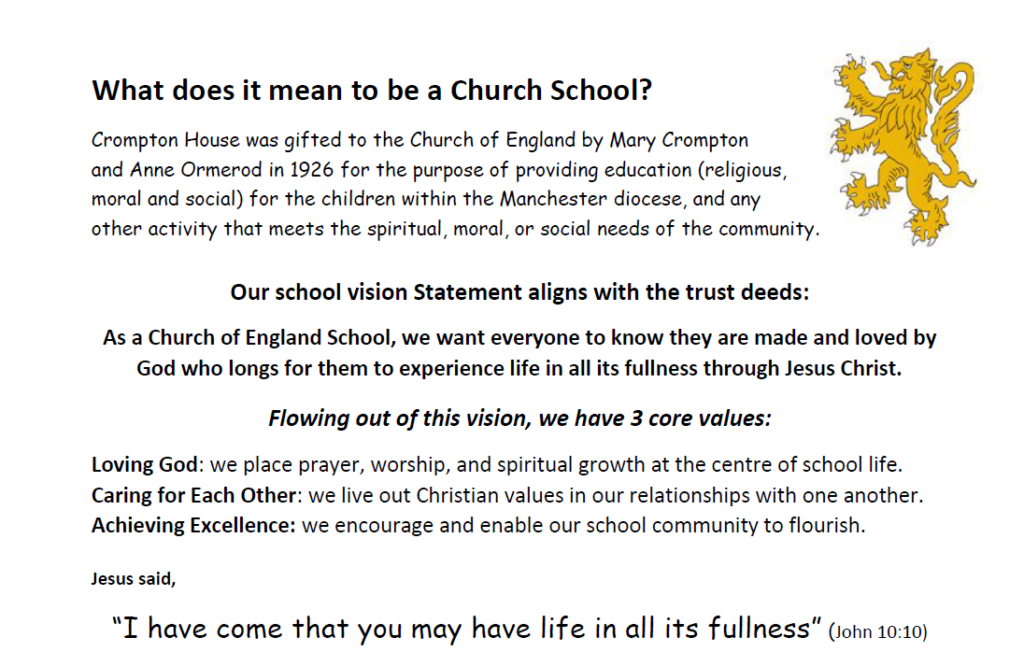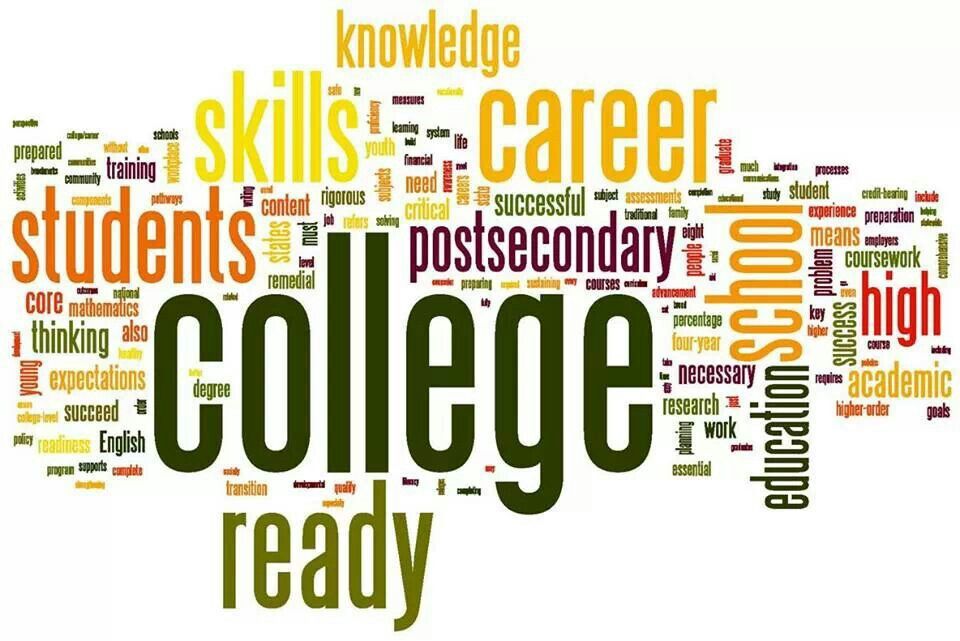Inspiring FUTURES - Students
Crompton House School Inspiring FUTURES Curriculum
A Note to the Reader
- All students have an equal entitlement to high quality Careers Education, Information, Advice and Guidance at Crompton House that helps to prepare them for choices and transitions affecting their future education, training and employment.
- The government has created a framework of guidelines that as a school we should look to implement. These are known as the Gatsby Benchmarks, a framework of 8 guidelines that define the best careers provision in schools and colleges. The Careers Strategy is built around them, and they make a great place to start for planning or improving your programme.
The eight Gatsby Benchmarks are in the diagram below.
Gatsby Benchmarks
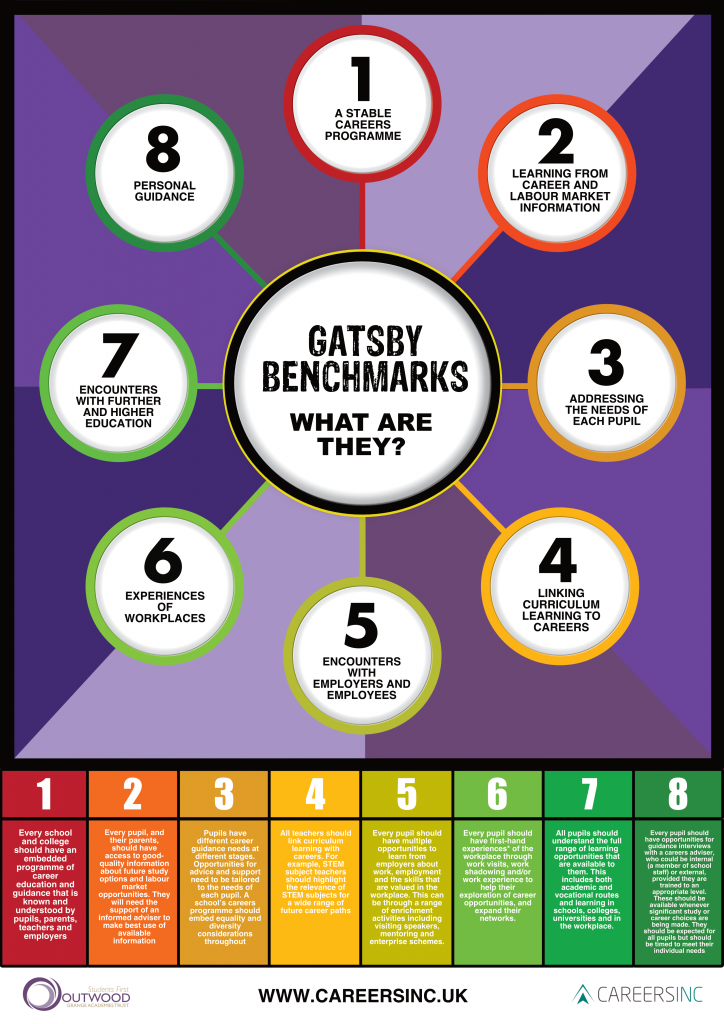
This document is designed to give you links to further information and guidance that you may find helpful when discussing future career choices and paths.
Parental involvement is encouraged. Online resources are accessed through the links on the school website.
Parents are kept up to date with careers work through letters, Future Ready briefings, at open evenings, parents’ evenings and Parent Information Evenings (PIE’s). Parents do not usually attend careers interviews.
All students will take part in a careers education programme in Years 7-13 that helps them to:
- Understand their education, training, employment and other progression opportunities.
- Develop the skills they need to plan and manage their own personal development and career progression.
- Access relevant information and learning from taster activities and roadshows.
- Make and maintain individual progression plans to help them improve their prospects.
- Offer feedback and ideas on how to improve the careers programme.
START Profile
At Crompton House, we engage all students with the START platform. START is an online careers platform designed to connect 11-18 year olds with their future career potential. It combines the most comprehensive source of information with a personalised experience and career planning tools, helping our students to make more informed decisions about their future study and career options, as well as developing their employability.
START Includes:
- A student profile: students build their profile and access personalised study and career information.
- Modules: activities to guide students through the information on Start at the right time.
- Up to date information: engaging content on what to study, where to learn and the world of work.
- Locker: an online record of achievement to evidence skills for future applications and CVs.
- Employability action plan: Students can set goals and stay in control of their career planning. https://www.startprofile.com/
Skills Builder Partnership
We also engage with the Skills Builder Partnership. This is an organisation that works to highlight the framework of skills that young people need to be successful in their future pathways.
The skills that are identified and tracked are:

-
-
- What subjects do you want to study?
- What qualifications do you want to gain?
- Where do you want to study?
- What career might you want to do in the future?
- Are you happy and settled at Crompton House?
-
https://www.chs-sixthform.org
https://www.northchaddertonschool.co.uk/Sixth-Form
https://www.bluecoat.org
https://www.osfc.ac.uk
An apprenticeship is a real job, with hands-on experience, a salary and the chance to train while you work. You are treated just like all the other employees, with a contract of employment and holiday leave. If you are 16 or over, you can become an apprentice as long as you spend at least 50% of your working hours in England for the duration of the apprenticeship and you are not in full-time education.
Unlike college applications, apprenticeships are advertised at different times in the year. You will need to be registered via the national website and regularly check for updates throughout the year.
https://www.apprenticeships.gov.uk/
https://amazingapprenticeships.com/resources/
https://gmacs.co.uk/apprenticeships
Deciding to go to university is a huge decision and should not be a ‘last thought’. This is an opportunity that may result in you leaving home and starting a ‘new life’. Undertaking a course in higher education can benefit you in a number of ways.
Not only can university offer an environment rich in social and cultural experiences, but can also help further your career prospects by gaining valuable new skills sought by employers, which will open more doors to better jobs.
Getting a university qualification means you are less likely to be unemployed than non-graduates, so will always be extremely advantageous during your job search.
There are now around 50,000 courses available at universities and colleges across the UK, so there’s bound to be something that appeals to each of you. There are different flexible options for studying a higher education course: full-time, part-time and online distance learning, so you can fit it in around any commitments you may have. There are 3 key benefits of taking this future path;
- Better salaries
Although the monetary rewards vary greatly depending on ied, it has been shown that on average, graduates will earn significantly more in their lifetime than those with A levels and no degree qualification. The difference currently stands at around £100,000 before tax, and can rise to nearly £350,000 for medical graduates.
- Career prospects
Having a degree will improve the chances of gaining promotion, and help you progress up the career ladder more quickly and into your dream job. In addition to the academic side of university education, there will be social benefits too.
There is much more to higher education than just poring over textbooks and taking exams – all universities have a wide range of clubs and societies that you can become a part of, e.g. kayaking, rugby, chess, drama, photography, etc. This can provide valuable experiences that will look great on a CV when applying for jobs. Employers will see you as a more rounded person, having mixed with a variety of people from all walks of life, and developed important life skills such as communication and problem solving. The experiences should also give you more confidence, which will be obvious to employers.
- Independence
Attending university and living away from home gives you the chance to be completely independent. You will develop important skills that include cooking, cleaning and managing finances.
Of course, if you pick the right subject, there will also be the enjoyment in studying the course and expanding knowledge on something that interests you. Most graduates say they do not regret going to university or college and describe it as one of the best experiences of their life.
Students can apply for up to FIVE different courses. Use the five choices wisely. By this point, you should know the specific area of which you wish to study. Therefore, your course selections should all be within a similar field of subject matter. Course research must be done thoroughly. Look carefully at the subject entry requirements. What makes a good application?
- Good results and predicted grades.
- Personal statement is well written, well structured and with correct grammar, etc.
- Courses have been demonstrably well researched.
- Work experience, hobbies, etc.
- Wider reading, listening, interest in cinema, museums, art, etc. outside the specification.
Application sent – what happens next?
Students will receive either:
- An unconditional offer
- A conditional offer
- Unsuccessful application
Accepting Offers
Once all offers have been received, you will then have to select one firm course and one as an insurance. The insurance, as mentioned above, is usually a fall-back option in the event that you do not reach your predicted grades.
https://www.ucas.com/
https://www.gov.uk/student-finance
Labour Market Information focuses on giving you information about the local area you live in:
- Wage rates
- Job availability
- Skills gaps
- Unemployment rates
- Reports from professional bodies
- Economic summaries from the local area
- Labour Market Information ensures that young people are equipped with the information needed to make well informed realistic decisions.
Useful Links - General
https://targetcareers.co.uk/parents
https://icould.com/
https://theapprenticeshiphub.co.uk/
https://nationalcareersweek.com/
https://nationalcareers.service.gov.uk/
https://login.startprofile.com/Login.aspx
https://careermap.co.uk/careermag/
https://www.notgoingtouni.co.uk/
https://www.greatermanchester-ca.gov.uk/what-we-do/work-and-skills/apprenticeships/

